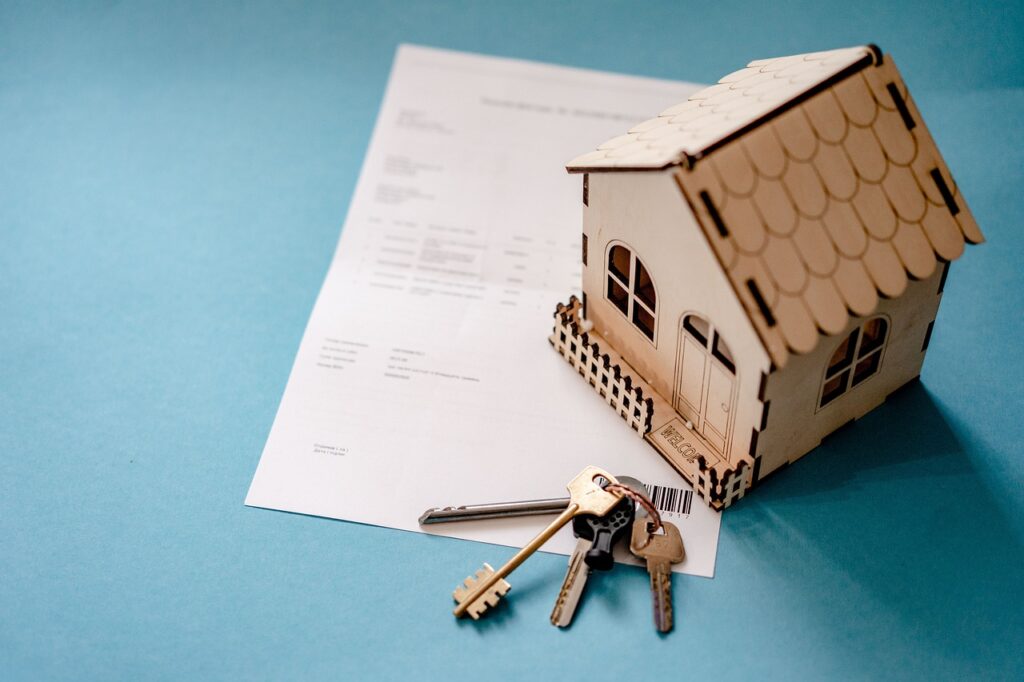 The short answer to this question is: YES. If that were the end of the story, then this would, again, be the shortest blog I have ever written. But, alas, again this is not the whole story. I have previously discussed what a beneficiary deed is and why you may want one, but we will focus on the avoiding probate aspect of a beneficiary deed in this blog post.
The short answer to this question is: YES. If that were the end of the story, then this would, again, be the shortest blog I have ever written. But, alas, again this is not the whole story. I have previously discussed what a beneficiary deed is and why you may want one, but we will focus on the avoiding probate aspect of a beneficiary deed in this blog post.
Although a beneficiary deed will avoid probate in almost all cases, there are conditions under which probate might still need to happen when you have a beneficiary deed. You may have other assets that trigger the need for probate. You may run into difficulties with Medicaid if you have a beneficiary deed. You may have debts that need to be repaid. Any of these factors can affect a beneficiary deed’s ability to avoid probate. A beneficiary deed is quite useful and helpful in many cases, but you will want to watch out for its shortcomings.

A Beneficiary Deed Doesn’t Cover All of Your Assets
A beneficiary deed can transfer your real estate property – like your house or rental properties – to the people you designate to receive the property. You can designate the proper people as beneficiaries – to inherit the property – on the beneficiary deed itself. As long as you record the beneficiary deed with the county prior to your death, the property can then transfer to your real estate to the named beneficiaries at the county clerk and recorder level, without the need to go through probate.
However, the beneficiary deed only affects the specific piece of real estate for which it was created and filed. If you have other assets worth more than $82,000, then probate may need to be opened to address those assets. Of course, if your other assets have beneficiary designations (for IRAs, 401(k)s, life insurance and other similar assets), pay on death designations (for bank accounts), or transfer on death designations (for investment accounts), then those other assets will also not be subject to probate. But, you do want to keep in mind that a beneficiary deed only affects a single property. If you have more than one property, you need a beneficiary deed for each property. If you sell a property, then you need a different property for your new property. You just need to keep up on what property and assets you have, and ensure all of the assets are covered by the proper methodology to transfer the assets without probate being involved.
A Beneficiary Deed Could Affect your Medicaid Eligibility
 Medicaid is the biggest program available to pay for long term care needs towards the end of life. Medicaid may not provide the best coverage and pay for the highest level of care, so many people aren’t sure why we talk about Medicaid. The sheer size of Medicaid’s involvement in long term care, and the fact that so many other programs borrow or follow Medicaid’s rules and regulations, means we need to consider what Medicaid thinks about a beneficiary deed.
Medicaid is the biggest program available to pay for long term care needs towards the end of life. Medicaid may not provide the best coverage and pay for the highest level of care, so many people aren’t sure why we talk about Medicaid. The sheer size of Medicaid’s involvement in long term care, and the fact that so many other programs borrow or follow Medicaid’s rules and regulations, means we need to consider what Medicaid thinks about a beneficiary deed.
Medicaid doesn’t really like beneficiary deeds. Medicaid may decide to not pay for long term care if a beneficiary deed is in place. This is because Medicaid wants to recover what it has paid out of a person’s estate when a Medicaid recipient passes away. If Medicaid has paid for a person’s care, and then the person dies and a house is sold, Medicaid wants to be paid back from the proceeds of a sale. A beneficiary deed can interfere or complicate Medicaid’s ability to recover the amount paid from the Medicaid recipient’s estate and real estate property, so Medicaid may require a beneficiary deed to be revoked prior to paying for a person’s care.
Obviously, if a beneficiary deed is revoked, then the beneficiary deed will not be able to function and avoid probate. There are other strategies available for Medicaid planning, but using a beneficiary deed is not a particularly helpful or useful strategy to protect assets from Medicaid.
Other Creditors Can Also Force Probate to Open
 Medicaid is not the only program that wants to get paid back when someone dies. Any creditor to whom a deceased person owes money will want to be paid back out of assets of the deceased person’s estate. This includes mortgage companies, credit card companies, medical offices, or anyone else to whom the deceased person owes money. If the creditors are not paid, then the creditors can force probate to open, and demand they be paid out of the assets of the deceased person – this is what is called the “estate.” If a house transfers to the named beneficiaries in a beneficiary deed, but debts are not paid, then the creditors can force probate to open to claim their portion of the estate to settle debts that remained due. The equity in a house can be forced to be used to pay the debt, and creditors can control opening an estate, not just the beneficiaries or heirs.
Medicaid is not the only program that wants to get paid back when someone dies. Any creditor to whom a deceased person owes money will want to be paid back out of assets of the deceased person’s estate. This includes mortgage companies, credit card companies, medical offices, or anyone else to whom the deceased person owes money. If the creditors are not paid, then the creditors can force probate to open, and demand they be paid out of the assets of the deceased person – this is what is called the “estate.” If a house transfers to the named beneficiaries in a beneficiary deed, but debts are not paid, then the creditors can force probate to open to claim their portion of the estate to settle debts that remained due. The equity in a house can be forced to be used to pay the debt, and creditors can control opening an estate, not just the beneficiaries or heirs.
In this type of situation, it is far better to pay off the creditors, and not have the creditors force open probate to satisfy debts. This may mean the house needs to be sold to pay off the debts, but that is usually a better solution than having creditors force open an estate. In the case of a mortgage company, they will want the loan paid off, usually through selling the house, or the beneficiaries getting a different loan in their own names to pay off the balance due on a mortgage. These types of things can happen fairly easily, but if there is a beneficiary deed in place, you don’t want to ignore creditors, or you will find yourself right back in probate to death with creditors anyhow. As nice as it would be for loans to end when someone dies, that is not how it goes, so you need to account for outstanding loans on real estate and other debts.
Beneficiary Deeds Do Avoid Probate
Having said all of what is the above, a beneficiary does avoid probate in most cases. When you set up a beneficiary deed, you need to pay attention to the other aspects of your estate plan, so that the beneficiary deed can work to avoid probate. But, if you set things up correctly, a beneficiary deed can be a valuable part of your estate plan. A beneficiary deed can make things easier on your beneficiaries or heirs. An experienced estate planning attorney can help you fit all the pieces together, including a beneficiary deed. To make an appointment to talk to an experienced estate planning attorney, click the link below.

 720-730-7274
720-730-7274









